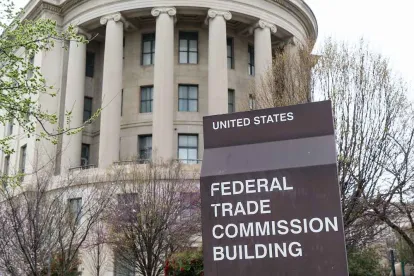On February 12, 2021, the Federal Trade Commission announced that it has approved a final consent order – following a public comment period – settling charges that glue maker Chemence, Inc., and its company president supplied pre-labeled and pre-packaged glues with deceptive “Made in USA” claims to its trade customers for use in marketing the strong, fast-acting glues under retailer brand names.
As part of the settlement Chemence and the company president are required to pay $1.2 million to the FTC, the highest monetary judgment ever for a Made in USA case.
The matter was first announced by the FTC in December 2020. According to the FTC’s complaint, Chemence and its company president supplied glues in packages labeled with deceptive, unqualified “Made in USA” claims.
Under the terms of the final order, Chemence and the company president are prohibited from making unqualified U.S. - origin claims for any product, unless they can show that the product’s final assembly or processing - and all significant processing - takes place in the United States and that all or virtually all ingredients or components of the product are made and sourced in the United States.
Under the order, any qualified Made in USA claims must include a clear and conspicuous disclosure about the extent to which the product contains foreign parts, ingredients, components, or processing.
Finally, to claim that a product is assembled in the United States, Chemence and the company president must ensure that it is last substantially transformed in the United States, its principal assembly takes place in the United States, and U.S. assembly operations are substantial.
The order also prohibits Chemence and the company president from making any country-of-origin claim about a product or service unless the claim is not misleading and they have a reasonable basis that substantiates their claim.
The order also contains provisions requiring Chemence and the company president to (i) notify certain third-party trade customers of the order; and (ii) provide compliance reports.
The Federal Trade Commission has an Enforcement Policy Statement on U.S. Origin Claims and other business guidance on how companies can comply with the Made in the USA standard. The FTC’s Made in USA page features cases, instructive closing letters, and the brochure Complying with the Made in USA Standard, which answers many of the questions marketers and manufacturers often ask.
FTC Acts to Ban Payday Lender From Industry
In another recent FTC matter that should be of particular importance to digital marketers and lead generators - particularly those operating it the consumer credit niche – the owners and operators of an alleged payday lending scheme that overcharged consumers millions of dollars will be permanently banned from the lending industry under the terms of a settlement. The settlement also provides that nearly all outstanding debt - made up entirely of illegal finance charges - held by the company will be deemed as paid in full.
According to the FTC, the scheme was operated online and used deceptive marketing to convince consumers that their loans would be repaid in a fixed number of payments. The complaint alleges that the company instead continued to draw millions of dollars in payments from consumers’ bank accounts long after the loans’ original principal amount and stated repayment cost had been repaid, and would do so until consumers completely closed their bank accounts or found some other way to cut off payments.
“These defendants hoodwinked people in financial need by charging much more than promised for payday loans,” said FTC attorney Daniel Kaufman, Acting Director of the FTC’s Bureau of Consumer Protection. “We expect payday lenders to not only honor the terms of their deal, but also to refrain from making a never-ending series of unexpected withdrawals from customers’ bank accounts, as these companies did.”
Under the terms of the settlement, two individual defendants, along with their companies will be permanently prohibited from making loans or extending credit of any kind.
The settlement includes a monetary judgment of $114.3 million, which is partially suspended based on an inability to pay.
The defendants will be required to turn over all corporate assets and almost all domestic personal assets along with a number of vehicles to a receiver. The receiver will wind down and liquidate the business and provide all proceeds to the FTC.
Any consumer loan made by the company before it was temporarily shut down as part of the case will be considered to be paid in full if the original amount of the loan and one finance charge have been paid. The settlement also prohibits the defendants from making any misrepresentations related to collecting on any debt, as well as prohibiting them from making unauthorized withdrawals from bank accounts.
If the defendants are found to have misrepresented their financial status, the full amount of the monetary judgment would be immediately due.
The FTC’s case against another corporate entity will continue.




 />i
/>i

